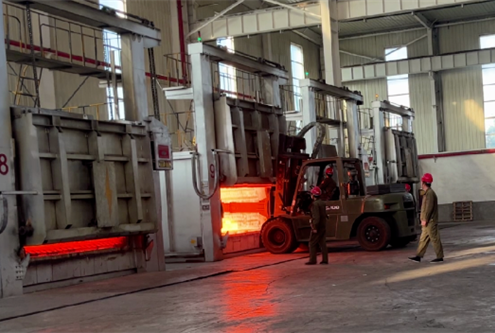Discussion on Difficulties and Countermeasures of Titanium Alloy Processing
Titanium alloy, a lightweight and high-strength metal material, plays a pivotal role in aviation, aerospace, medical and other fields. However, the processing of titanium alloys is full of challenges, and its special physical properties make processing much more difficult. This article will deeply explore the difficulties of titanium alloy processing and propose corresponding countermeasures, to provide strong technical support for the wide application of titanium alloys.
The primary difficulty in processing titanium alloys is its extremely low thermal conductivity. Compared with steel and aluminum, titanium alloys have poor thermal conductivity, which makes it difficult to effectively dissipate the heat generated during the cutting process and concentrate it in the cutting area. This phenomenon causes the cutting tools to withstand extremely high temperatures during processing, which can easily lead to rapid wear and cracking of the cutting tools, seriously affecting processing efficiency and product quality.
Secondly, the elastic modulus of titanium alloy is relatively low, which means that it is prone to elastic deformation during processing. Especially when processing thin-walled or ring-shaped parts, this deformation phenomenon is more obvious. Deformation will not only reduce the geometric accuracy of the part but may also cause work hardening, further reducing the fatigue strength of the part.

In addition, the strong affinity of titanium alloys is also a difficulty in the processing process. During turning and drilling processes, titanium alloys tend to form long and continuous chips, which can easily wrap around the tool and affect processing efficiency. At the same time, when the cutting depth is too large, it is easy to cause serious problems such as sticking, burning or breakage of the knife.
In response to the above difficulties, we propose the following countermeasures:
First of all, using coolant during machining is an effective way to reduce cutting temperatures. Choosing the right coolant, such as non-soluble oil coolant or soluble cutting coolant, can significantly reduce the temperature of the cutting area, improve the quality of the machined surface, and extend the service life of the tool.
Secondly, choosing the right tool is crucial for processing titanium alloys. Tools should have excellent heat resistance and wear resistance to cope with the high temperatures and high stresses during titanium alloy processing. At the same time, keeping the cutting edge sharp and using advanced grinding technology can also effectively reduce cutting forces and improve processing efficiency.
In addition, controlling cutting speed and feed rate is also an effective means to reduce processing difficulty. Lowering the cutting speed can reduce heat generation, while maintaining a constant feed or appropriately increasing the feed rate can help reduce the dwell time of the tool in the machining area, reducing the risk of heat accumulation and work hardening.
In addition, the use of high-rigidity machine tools is also a key factor in ensuring the quality of titanium alloy processing. High-rigidity machine tools can absorb vibration and reduce chatter during cutting, thereby improving processing accuracy and stability.
Finally, regular cleaning of processing equipment and cutting tools is also an aspect that cannot be ignored. Cleaning can effectively prevent debris deposition, maintain the good operating condition of the equipment, and improve processing efficiency.
To sum up, although the processing of titanium alloys is full of challenges, by using appropriate coolants, cutting tools, and processing parameters, as well as using high-rigidity machine tools and regular cleaning equipment, we can effectively overcome these difficulties and achieve efficient and high-efficiency processing of titanium alloys. Precision processing. With the continuous advancement and innovation of technology, it is believed that the application of titanium alloys in more fields will become more extensive and in-depth.


